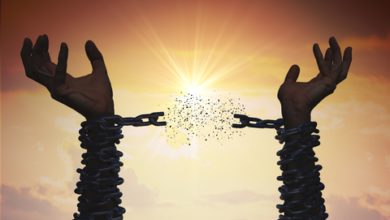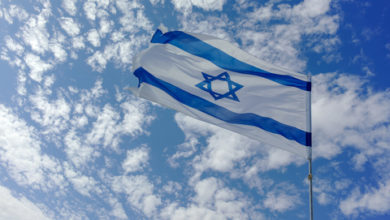The Essence of Existence
The Prophet Isaiah turns to the community of Israel with consolation: “Be happy, barren woman who did not give birth” [54:1]. Who is this person to whom the prophet turns? Is there a personality that stands alone, which has a dialogue with the Creator? The answer is that it is the entire nation, throughout all the generations, which is viewed as a single collective personality, and which is addressed by a collective noun denoting fondness – a companion, a wife, a daughter, a sister, a mother, or a virgin from Israel.
The community of Israel appears as being in competition with other communities. In this week’s Haftarah (the first verse of which is quoted above), it is described as a desolate woman whose husband left her, as opposed to the “possessed one” which represents an attempt to establish “a mystical enlightenment, recognized to be faithful, which can be external to the existence of the nation” [Rav Abraham Yitzchak Kook, Orot, page 17]. In the annals of history, this desire was fulfilled within Christianity and Islam, which during the time of exile wanted to absorb the enlightened approach of the community of Israel without maintaining any contact with the nation of Israel itself.
Such attempts are possible only at a time when the light of the Shechina – the holy presence – which appears within Israel is diminished and when the community of Israel appears as a spiritual movement similar to others, in a status of “low-level uniqueness.” However, at the time that the nation returns to its land, when the “high-level uniqueness” is revealed, all other spiritual insights disappear by comparison to the community of Israel, and in fact they are absorbed within it. The result is that the community of Yisrael is revealed in its true state, not as one religion of many or as one nation among all the others, but rather as the essence of all existence – a point of reference which includes everything that is encompassed by the boundaries in a worthy way. (See Orot, page 138).
In such a perfect situation, an encounter with secular life and general culture is no longer dangerous, since “when the power of Israel is great and its soul shines within it spectacularly, and its practical branches are completely in order, with sanctity, uniqueness, and blessing, with respect to the Temple and the government, prophecy and wisdom – then the expansion to include the secular, to give pleasure to spiritual and physical senses, to look penetratingly into the lives of many different nations and peoples, including their works and their literature, and the increasing strength of natural life, are all good and have the ability to broaden the good light.” [Orot, page 67].
The prophet brings the news of expansion of the sanctity to include all of the realm of the living: “Expand the place of your tent, let the curtains of your dwelling-place be stretched out, do not hold back, lengthen your cords and strengthen your tent stakes, for you will expand to the right and to the left and your offspring will inherit other nations and settle desolate cities.” [54:2-3].
Redemption cancels out the shame of the Christian claims against Judaism: “Have no fear, for you will not be put to shame, do not feel humiliated for you will not be disgraced, for you will forget the shame of your youth and you will no longer remember the humiliation of being a widow.” [54:4].
Redemption also renews a world-encompassing approach of Divine guidance which is not limited by the boundary of Israel as it was in the time of exile but which turns towards the entire world: “And your redeemer, the Holy One of Israel, will be called the G-d of the whole world” [54:5].
Source: “AS SHABBAT APPROACHES” – a biweekly column in Shabbat B’Shabbato (Zomet Institute) See: http://www.zomet.org.il/eng – Ki Teitzei 5775, issue 1589.



